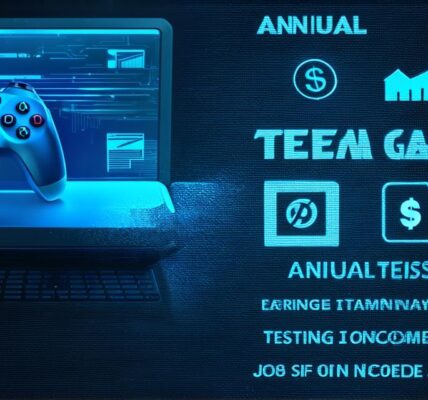The rise of independent game development in recent years has been nothing short of revolutionary. With the advent of new technologies and platforms, more people than ever before are able to create and distribute their own games.
This article will explore what independent game development is, its benefits, challenges, and best practices.
What is Independent Game Development?
Independent game development refers to the creation of video games by individuals or small teams, without the involvement of large corporations or publishers. These games can be created for a wide range of platforms, including PCs, consoles, mobile devices, and virtual reality.
One of the main benefits of independent game development is the freedom it offers to creators. They are not bound by the constraints of big budgets, corporate agendas or marketing strategies. This allows them to create games that are truly unique and authentic, without compromising on their artistic vision.
Independent game developers can also be more nimble and responsive to market demands than larger studios. They can quickly release updates and patches to fix bugs or add new features based on player feedback, which can lead to a better overall gaming experience.
Challenges of Independent Game Development
Despite its many benefits, independent game development is not without its challenges. One of the biggest challenges is marketing and distribution. Without the backing of a large publisher, it can be difficult for independent games to reach a wide audience.
Another challenge is funding. Creating a high-quality game can be an expensive process, and independent developers may struggle to secure the funds they need to bring their vision to life. This can lead to low-quality games or games that are rushed to market in order to recoup costs.
Finally, independent developers must also contend with the pressure of competition. With so many games being released every day, it can be tough for an unknown developer to stand out from the crowd and attract players.
Best Practices for Independent Game Development
To overcome these challenges and succeed in the competitive world of independent game development, there are several best practices that developers should follow.
First and foremost, they should focus on creating a high-quality product. This means investing time and resources into creating a polished game with solid mechanics and engaging content.
Developers should also be mindful of marketing and distribution strategies. They can leverage social media, online forums, and other channels to build awareness of their games and attract players. They should also consider partnering with other developers or publishers to help distribute their games to a wider audience.
Another important best practice is to be open to feedback and willing to make changes based on player input. This can help improve the overall gaming experience and keep players engaged over the long term.
Case Studies in Independent Game Development
There are many successful examples of independent game development, ranging from small indie studios to larger teams with more resources.
One example is Minecraft, which was created by Swedish programmer Markus Persson (also known as Jeb). Minecraft was initially released as a simple sandbox building game, but it quickly gained popularity and has since become one of the most successful games of all time.
Another example is Papers, Please, which was developed by indie studio Lucas Pope. The game was released to critical acclaim in 2013 and has since been ported to multiple platforms, including PC, iOS, and consoles.
FAQs
Q: What resources do I need to start an independent game development project?
A: To start an independent game development project, you will typically need a computer with appropriate software (such as Unity or Unreal Engine), creativity, and some programming skills. You may also need funding to cover the costs of creating and marketing your game.
Q: What are some common challenges faced by independent game developers?

A: Common challenges faced by independent game developers include marketing and distribution, funding, and competition. Other challenges may include technical difficulties and maintaining a dedicated team.




